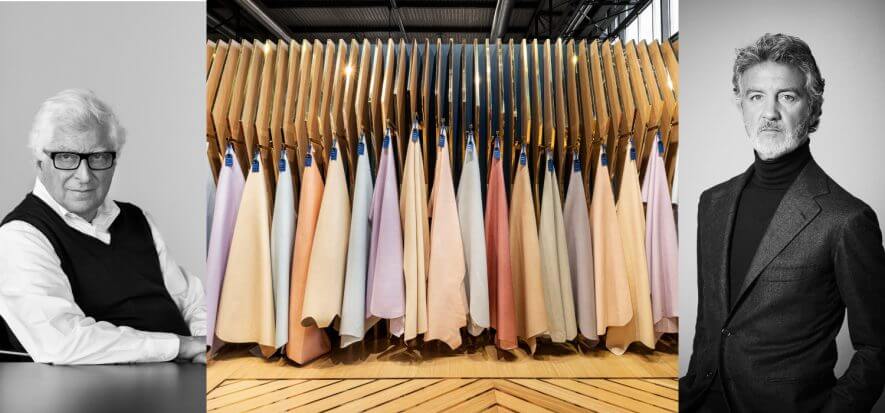Prada Group acquires 43.65% of Conceria Superior. The transaction, the value of which is not known, foresees that the responsibility for the management of the Santa Croce sull’Arno-based company will remain with the current CEO Stefano Caponi (pictured right). “The entry into the share capital of Conceria Superior represents an important step in the path of vertical integration of the production chain,” commented Patrizio Bertelli, CEO of Prada Group (pictured left), in a note. “We are doing this by investing in infrastructures and people, to increase our industrial know-how as well as to control quality along all the processing stages. This operation will enable us to accelerate important issues such as the traceability of raw materials and the transparency of our supply chain”.
43.65% of Conceria Superior to Prada
The relationship between Prada and Superior, a tannery specialising in calfskin that has recently invested in process digitisation and a sustainable development plan, is not new. In 2015, recalls Corriere della Sera, the two partners jointly took over Mégisserie Hervy, a tannery in Limoges that produces lambskin. “We have always worked together,” Bertelli comments to CorrSera. “At a certain point it seemed natural to seal this relationship. We could have done it a couple of years ago, we have done it now, it is a completion of the work carried out so far”.
Relations
What margins of autonomy will the Tuscan tannery have from now on? “For us, it is not a problem if the companies of which we are partners also have relationships with our competitors,” replies Prada’s CEO. “I find that the concept of absolute ownership does not make sense. It is not in our interest that entrepreneurs become employees. Instead, we want them to be able to express themselves at their best, producing their products at the highest quality, also for other customers’” An M&A transaction is not an act of colonisation, in short. “A partner must always feel ownership of the company he has created,” Bertelli concludes. “For our part, we must help them in what we know how to do, in internationalisation rather than in the integration of sustainability in processes”.
Read also:










